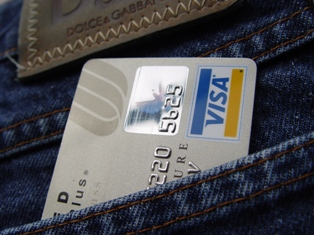Prepaid Cards May Take Advantage of Consumers Already Drowning in Credit Card Debt
As banks increase fees, more consumers are forgoing traditional checking accounts for prepaid debit cards.

Back in 2009, consumers loaded $28.6 billion onto prepaid cards. By 2013, that number is expected to grow to more than $200 billion, according to CNN.
But while prepaid cards may save a few bucks in the short term, they often present brand-new risks, say DebtStoppers bankruptcy attorneys.
Prepaid cards are mainly used by those with bad credit or who don't earn enough to meet the minimum balance required by many banks.
But though they offer some conveniences, prepaid cards aren't regulated like bank accounts. While many folks choose prepaid cards to avoid bank fees, the cards often come with fees of their own - it's just that those fees are carefully hidden.
In fact, most prepaid cards charge between seven and 15 fees, according to a recent study.
For instance, it's normal for a prepaid debit card to have an initial activation fee, a monthly service fee, a customer service fee, and a withdrawal fee to retrieve money from the ATM. Fees typically range between $0.50 and $10.
Many prepaid card users like the fact that, as opposed to checking accounts, they can't spend more with their card than the funds they have available.
But more and more, prepaid card issuers are silently enrolling customers in overdraft protection programs - meaning consumers could pay a penalty for charging beyond their available balance.
Unlike credit card customers, prepaid card holders don't have to be warned about rate changes or provided with a rundown of accumulating debt. Because prepaid accounts are not always FDIC insured, having a card that is lost or stolen can mean losing your paycheck.
For those who keep a close eye on fees and manage finances wisely, a prepaid debit card may help avoid the interest that comes with credit card debt. Unfortunately, most people rely on prepaid cards for the same reasons they rely on credit cards: they're short on cash, overwhelmed by expenses, and suffering from a low credit score.
If your finances are in peril, changing your payment method isn't a real solution. Filing for bankruptcy can often reorganize debt - or, in many cases, eliminate it completely - allowing for a fresh start.
And while some consumers opt to use a prepaid card after filing for bankruptcy, it may not be necessary. Many of our clients discover they can be approved for loans or regular credit cards shortly after filing.
Unlike many debt relief solutions, bankruptcy has the ability to improve your finances in both the short run and the long run.
To learn if bankruptcy is right for your situation, contact the DebtStoppers Bankruptcy Law Firm at 800-440-7235 for a free personal debt analysis with an experienced bankruptcy attorney.
More Blog Entries:
As Student Debt Bubble Grows, Lawmakers May Have to Rethink Requirements for Discharging School Loans: September 2, 2012
Young Borrowers Make Up Majority of Underwater Homeowners: August 28, 2012
Additional Resources:
Prepaid Debit Cards Should Be More Heavily Regulated -Study, by David Henry, Reuters
Prepaid Cards Are 'Risky' and Loaded with Fees, by Jennifer Liberto, CNN Money

